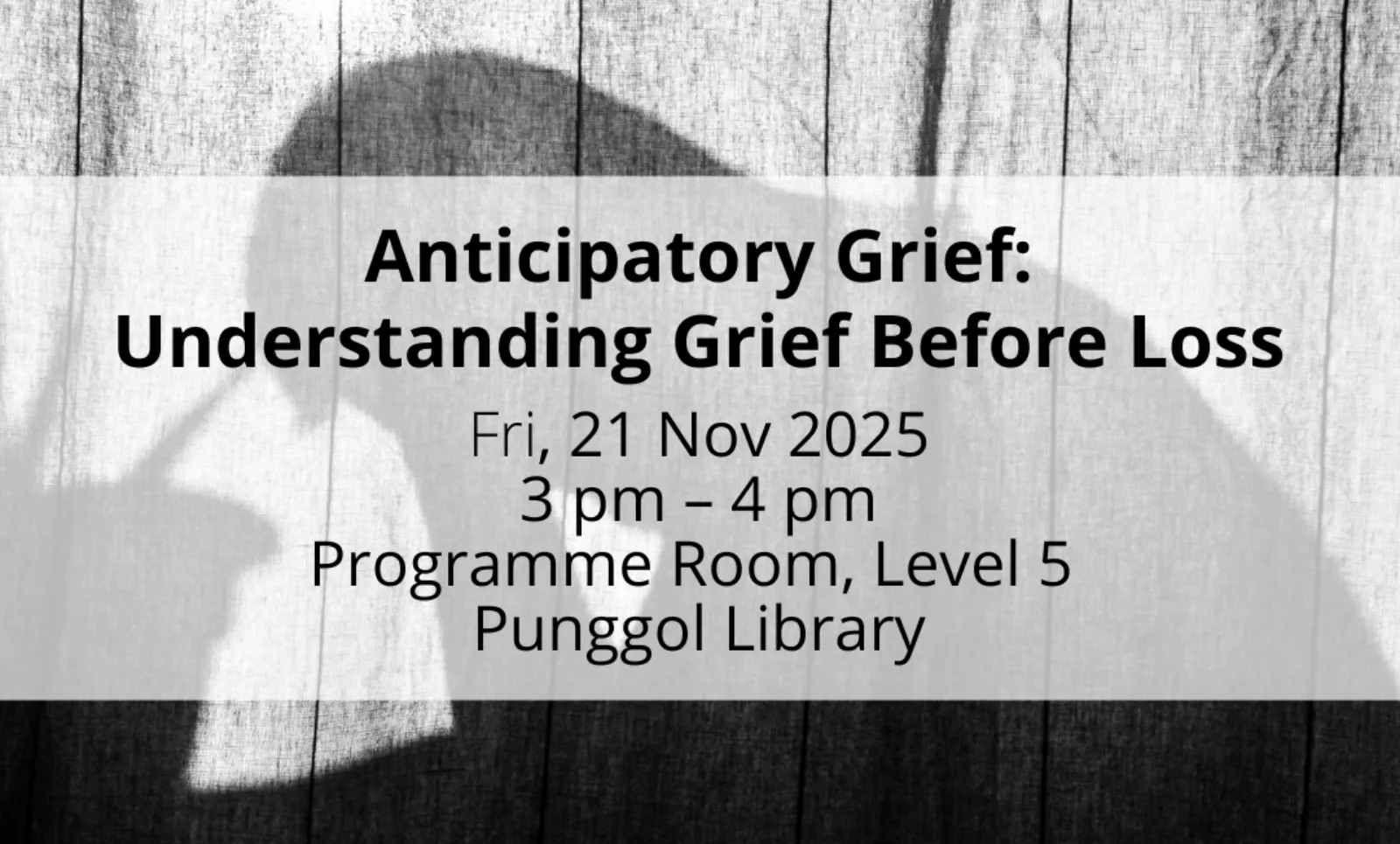Join us and learn insights into what anticipatory grief is, how it manifests, and practical strategies to navigate this emotional journey.
Date: 21 November 2025 (Friday)
Time: 3.00pm – 4.00pm
Punggol Library
Programme Room, Level 5
Register online. Session is free of charge
You will learn about:
• Understanding Grief: What grief is and the different types of grief
• Understanding Anticipatory Grief: What is anticipatory grief
• Signs of Anticipatory Grief: Emotional, physical, and spiritual symptoms
• Coping with Anticipatory Grief: Strategies for emotional resilience and communication with loved ones
• Resources: Available support systems and community resources
Disclaimer: All content and advice shared during the programme are for informational purposes only. They are not intended to be a substitute for professional medical advice, diagnosis, or treatment.
Grief does not only begin after a loss. It can start long before that in anticipation of it. Anticipatory grief is a natural, yet complex emotional process experienced by caregivers and loved ones when facing a significant loss, such as a terminal illness or progressive decline.
Participants will gain a deeper understanding of their emotions, learn coping techniques, and discover available resources to support themselves and others through this experience.
Cheong Se Ying – Programme Executive, Allkin Mental Health Service
Chen Si Qi – Programme Coordinator, Allkin Mental Health Service
Se Ying and Si Qi are from the Community Outreach Team (CREST) at Allkin Mental Health Service, where they provide support to individuals living with mental health conditions and/or dementia, along with their caregivers. Through their work, they have engaged closely with families navigating the emotional complexities of caregiving, including anticipatory grief. They also conduct talks and workshops in collaboration with community centres, active aging hubs, schools, and libraries to raise awareness and equip the community with essential coping strategies.
Caregivers




